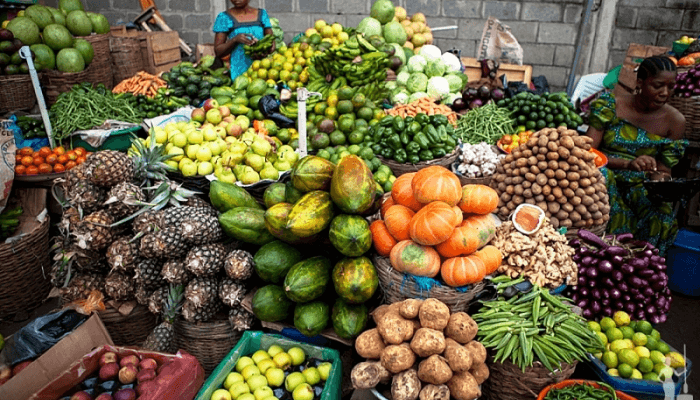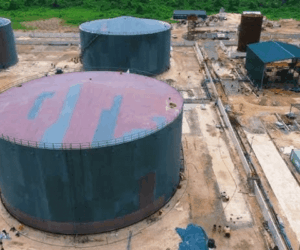Every day, as millions of Nigerians struggle to put food on their tables, we throw away nearly half of everything we produce. This is not just tragic; it is completely preventable.
I have witnessed this contradiction firsthand throughout my life in Nigeria. Drive through Lagos and you will see overflowing dumpsters behind supermarkets filled with bread that is one day past its “best by” date, while just blocks away, families skip meals they cannot afford. Travel to farming communities in Kano, and you will find farmers watching their tomato harvests rot because they cannot connect with buyers in time.
Nigeria loses 40% of its total food production annually to waste and spoilage. That’s billions of Naira vanishing while food insecurity persists across our nation. Post-harvest losses alone claim up to 50% of agricultural produce before it ever reaches consumers. This is not just an economic disaster; it is a moral crisis.
But here is what gives me hope: we have the tools to solve this problem right now.
The real problem is not scarcity, It is coordination
Nigeria does not lack food. We lack efficient systems to get surplus food from those who have it to those who need it. The gap between a restaurant in Victoria Island with excess meals and a food bank in Mushin serving hungry families is not physical distance; it is information distance.
Traditional approaches, while well-intentioned, cannot match the size of this challenge. Organizations like Lagos Food Bank and LAWMA are doing crucial work, but they are fighting a systemic problem with patchwork solutions. We need technology that can operate at the speed and scale that Nigeria’s food waste crisis demands.
A digital bridge for Nigeria’s food system
This is why I’m building the Food Waste Marketplace Platform, a digital ecosystem designed specifically for Nigeria’s unique challenges and opportunities.
Picture this: A farmer in Kaduna has 500 kilograms of yams that won’t sell before they spoil. Instead of watching them rot, he opens an app and lists them instantly. Within minutes, a food bank in Abuja gets notified and can coordinate pickup. A supermarket in Ikeja with soon-to-expire dairy products connects directly with a community kitchen in Surulere. A restaurant chain across Lagos can instantly notify multiple NGOs about the end-of-day surplus.
This is not theoretical; we have the technology. What we need is the will to implement it on a scale.
The platform works through real-time listings that give immediate visibility to surplus food, intelligent matching that connects supply with demand based on location and need, and simplified logistics that cut through the coordination chaos that currently wastes so much food. Every transaction gets recorded, creating data that can inform better policies and optimize our entire food system.
Beyond waste reduction: Economic and environmental transformation
The benefits extend far beyond just moving surplus food. Businesses can reduce disposal costs while gaining tax-deductible donation records. Food banks and community organizations can serve more people by spending less on procurement. The environment benefits as we divert methane-producing organic waste from landfills and reduce the massive resource footprint of wasted food production.
Most importantly, this creates jobs. From logistics coordination to platform management to community outreach, a thriving food recovery ecosystem supports employment across multiple sectors.
Nigeria’s innovation moment
This platform represents more than technological innovation; it embodies Nigeria’s potential to solve complex problems through local ingenuity. We have a chance to transform one of our biggest challenges into a competitive advantage, showing the world how African innovation can address global issues.
But technology alone will not solve this. We need policy support for food donation incentives, infrastructure investment in cold storage and transportation, and cultural shifts that prioritize food recovery over disposal.
The call to action
I am calling on fellow entrepreneurs, policymakers, and citizens to join this movement. To restaurant owners and grocery chains, your surplus food is someone else’s lifeline. To government officials, create policies that incentivize food recovery and support digital solutions.
To investors, this is not just a business opportunity; it is a chance to be part of solving one of Nigeria’s most pressing challenges.
To my fellow Nigerians, we cannot accept that nearly half of our food production goes to waste while our neighbors go hungry. We have the creativity, the technology, and the moral imperative to fix this.
The Food Waste Marketplace Platform is my contribution to building the Nigeria we all want to see: one where innovation serves humanity, where technology bridges inequality, and where no good food goes to waste while people go hungry.
Nigeria’s food waste crisis has persisted for too long. It is time for digital solutions that match the scale of our challenges and the ambitions of our people.
The platform is ready; the need is urgent. Now, we need a collective will to make it happen.
.Durosanya is a Nigerian innovator and founder of the Food Waste Marketplace Platform initiative. He can be reached at [email protected].









